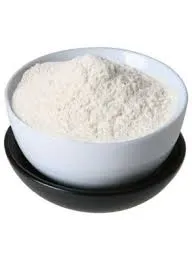
Nov . 25, 2024 16:19 Back to list
Top Hydroxyethyl Cellulose Suppliers and Manufacturers in the Industry Today
The Role and Impact of Hydroxyethyl Cellulose Manufacturers in Industry
Hydroxyethyl cellulose (HEC) is a non-ionic, water-soluble polymer derived from cellulose. Its unique properties make it a vital ingredient across various industries, including pharmaceuticals, cosmetics, food, and construction. The rise of hydroxyethyl cellulose manufacturers is a reflection of its technological advancements, market demand, and the continuous evolution of applications in different fields.
Understanding Hydroxyethyl Cellulose
HEC is produced by chemically modifying cellulose, a natural polymer that constitutes the cell wall of plants. The process involves the etherification of cellulose with ethylene oxide, resulting in a compound that is both soluble in water and has thickening properties. HEC is crucial for providing viscosity, stabilization, and suspension of particles in different formulations.
One of the key attributes of HEC is its ability to retain moisture. This characteristic makes it a popular ingredient in personal care products, such as lotions, shampoos, and creams, where it helps to enhance the skin feel and improve the texture of products. In the pharmaceutical industry, HEC acts as a binder in tablets and provides a controlled-release mechanism for medications.
Applications of Hydroxyethyl Cellulose
1. Cosmetics and Personal Care HEC is extensively utilized in shampoos, conditioners, moisturizers, and gels. It serves as a thickening agent, stabilizer, and film-forming agent, contributing to improved texture and performance. The ability to hydrate and retain moisture makes it especially valuable in formulations aimed at enhancing skin and hair health.
2. Pharmaceuticals In the pharmaceutical sector, HEC plays a multifaceted role. It is employed in the preparation of gels and ointments, enhancing the viscosity for better adhesion to the skin. Furthermore, due to its biocompatibility and non-toxicity, it is often used in oral and topical formulations, making it a popular choice among pharmaceutical manufacturers.
3. Food Industry Hydroxyethyl cellulose functions as a thickener, emulsifier, and stabilizer in food products. It helps to control texture and improve shelf life, acting as a safe alternative to synthetic additives. With growing consumer demand for clean label products, HEC has gained popularity due to its natural origin.
4. Construction In the construction sector, HEC is used in cement and plaster formulations. It improves workability and extends open time, allowing for better application. Its water retention properties aid in the curing process, thereby enhancing the strength of the materials.
hydroxyethyl cellulose manufacturers

The Role of Manufacturers
The significance of hydroxyethyl cellulose manufacturers cannot be overstated. They are essential in ensuring a consistent supply of high-quality HEC tailored to specific industries’ needs. With advancements in technology, manufacturers are continuously innovating and improving their production processes, which ultimately leads to better product quality and reduced costs.
Manufacturers play a critical role in product development. They collaborate with formulators and scientists to create customized HEC solutions that meet the unique requirements of different applications. This partnership drives innovation, resulting in new formulations that cater to evolving market needs.
Furthermore, the environmental aspect is becoming increasingly important. Many HEC manufacturers are now focusing on sustainability by adopting eco-friendly production methods and sourcing raw materials responsibly. This shift not only meets consumer demand for sustainable products but also aligns with global efforts to reduce environmental impact.
Market Trends and Future Outlook
As industries continue to evolve, the global market for hydroxyethyl cellulose is witnessing steady growth. The increase in demand for natural, biodegradable, and safe ingredients is expected to further drive the market. Manufacturers who can adapt to these changing trends while offering high-quality products will likely thrive in this competitive landscape.
Moreover, with the research and development of new applications, such as in nanotechnology and advanced healthcare solutions, the future of hydroxyethyl cellulose looks promising. Manufacturers that remain innovative and responsive to market demands will continue to lead in this sector.
Conclusion
Hydroxyethyl cellulose manufacturers play a pivotal role in unleashing the potential of this versatile polymer across various industries. Their contributions enhance product formulations, promote sustainability, and drive innovation. As global demand for HEC continues to rise, the partnership between manufacturers and end-users will be crucial in shaping the future of this essential ingredient.
-
Versatile Hpmc Uses in Different Industries
NewsJun.19,2025
-
Redispersible Powder's Role in Enhancing Durability of Construction Products
NewsJun.19,2025
-
Hydroxyethyl Cellulose Applications Driving Green Industrial Processes
NewsJun.19,2025
-
Exploring Different Redispersible Polymer Powder
NewsJun.19,2025
-
Choosing the Right Mortar Bonding Agent
NewsJun.19,2025
-
Applications and Significance of China Hpmc in Modern Industries
NewsJun.19,2025







